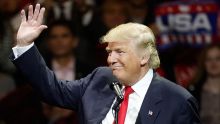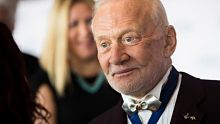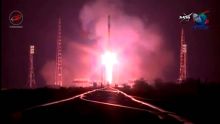Washington: US President-elect Donald Trump has spoken with Taiwan's president, a major departure from decades of US policy in Asia and a breach of diplomatic protocol with ramifications for the incoming president's relations with China.
Trump spoke by phone with Taiwanese President Tsai Ing-wen on Friday, Trump spokeswoman Hope Hicks said. The conversation was first reported by the Financial Times and the Taipei Times.
More World News Videos
Trump's Taiwan call concerns China
China resolutely opposes any form of official exchanges between the US and Taiwan, says a Chinese official after US President-elect Donald Trump spoke directly with the Taiwanese leader.
The call is the first known contact between a US president or president-elect with a Taiwanese leader since the United States broke diplomatic relations with the island in 1979. China considers Taiwan a province, and news of the official outreach by Trump is likely to infuriate the regional military and economic power.
Trump repeatedly criticised China during his campaign, promising to brand the country a currency manipulator, which could also add tension to relations with the Pacific power. He blamed China for undermining US manufacturing jobs by selling artificially cheap exports.
Tsai Ing-wen was one of four world leaders contacted by Trump on Friday, raising questions about whether he is effectively coordinating with the US State Department before reaching out to leaders overseas.
The Trump transition team confirmed the call in a statement summarising the contacts with leaders also from Afghanistan, the Philippines and Singapore.
"President-elect Trump spoke with President Tsai Ing-wen of Taiwan, who offered her congratulations," the statement said. "During the discussion, they noted the close economic, political, and security ties exists between Taiwan and the United States. President-elect Trump also congratulated President Tsai on becoming president of Taiwan earlier this year."
After running a platform that included taking a harder line with China than her predecessor, Tsai won election in a landslide in January. But her popularity has plummeted amid economic malaise; more than 100,000 people protested outside her office in September. She could face growing pressure to propose conditions for dialogue with China.

Less than two weeks ago, Chinese President Xi Jinping sat across from President Barack Obama at an economic summit in Peru and declared that the US-China relationship was at a "hinge moment" following the election of Trump.
"I hope the two sides will work together to focus on cooperation, manage our differences, and make sure there is a smooth transition in the relationship and that it will continue to grow going forward," he said at the start of a bilateral meeting with Obama, their ninth face-to-face encounter.

Xi spoke with Trump days after he was elected. The Chinese president told Trump that cooperation was "the only correct choice for China and the United States," Chinese state media reported.
The White House has not been getting direct reports about Trump's calls with foreign leaders. In some cases, they have gotten informal summaries from foreign counterparts.
The Taipei Times reported ahead of the call Friday that it was arranged to congratulate Trump on his election victory last month and to express hopes for an expanded relationship with the United States.
White House spokesman Ned Price said "there is no change to our longstanding policy on cross-Strait issues," adding that the US remains "firmly committed to our 'one China' policy."
The United States has pursued what it calls the policy since 1972, when then-President Nixon visited China. In 1978 President Jimmy Carter recognised Beijing as the only government of both mainland China and Taiwan, and Washington closed its embassy in Taiwan a year later.
Washington Post, McClatchy, Reuters















86 comments
New User? Sign up